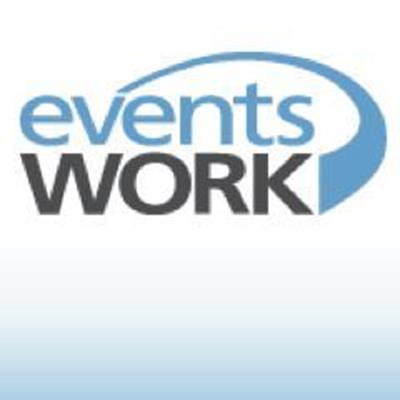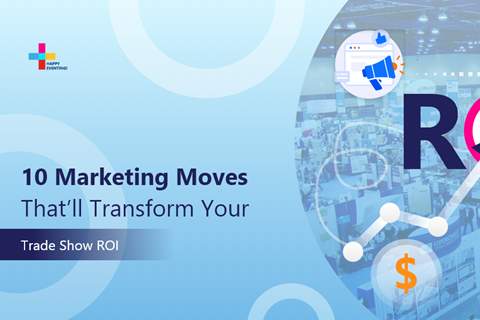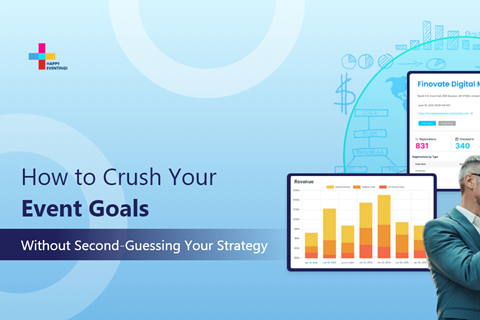Event Professional Going to a Job Interview? Don't Go Empty Handed!

Jun 28, 2016 Margaret Johnston, EventsWork
It feels great to be headed for an interview doesn’t it?
Especially when it’s a job you REALLY want!
Confident that your experience seems like a great fit, you’re pretty sure you have a good chance.
But how do you stand out and set yourself apart from other candidates?
Don’t show up empty handed!
Prepare a Professional Portfolio.
Arrive with a professional portfolio in hand and you instantly reflect you are serious about the role.
In addition it will prove you to be organized, innovative and prepared. (A general expectation for any job in the events industry.)
It’s a powerful tool that can add tremendous impact to your interview.
It’s not hard to create one. It just takes some time. Think of it as physical evidence to showcase your career and capabilities.
Here are some ideas of what to include:
- Actual work samples (Invitations, posters, directories, ads, floor plans, sponsorship prospectus, schedules, menus, tickets, agendas, run sheets, sales brochures, etc.)
- Photos of your work i.e. past events. (Use screenshots for online work.)
- Certificates from special courses or professional development.
- Certificates of special designations or industry activities including committee and volunteer work.
- Supporting examples of special skills i.e. writing, language skills, technical, software etc.
- Project samples if you are a recent graduate or early career.
- Letters of reference or appreciation from past employers or clients.
- Reference contact sheet. (You may not want/need to give this at the interview but have it with you just in case – only if all of your references are prepared for a call.)
How to present your portfolio:
This will depend on what you have but you can create a digital presentation or a physical one. Either way make sure you:
- limit how much you include
- ensure relevance to the job at hand
- have easy access during the interview
Print materials
- If you don’t have work samples but are bringing copies of letters/certificates etc. then a simple presentation folder is best. Resume copies on one side and additional documents on the other. Keep the resume copies most accessible in case your interviewer does not have one in front of them. Protect your originals. Bring copies of certificates, reference/thank you letters etc.
- Use a presentation folder or binder for work samples and insert items in clear page protectors (makes it easy to switch out in case different examples would be better another time)
- Group items together so you can easily show all materials from one project at a glance
- Use materials only from events that you think best illustrate your abilities.
- Be careful with outdated materials. Assuming they were innovative at the time, they can be used as evidence of your creativity provided they are balanced with showing something current.
- Order the pages or documents with the most recent or relevant first.
- Don’t take everything loose in a folder. The last thing you want is to have pieces fall out or to have to take time sorting through it all.
- Use tabs or dividers to group documents for quick access.
Using your portfolio:
- Once you have your portfolio together, practice accessing each item quickly. Be very familiar with what you have and how you might use it. Searching will make you appear disorganized. The idea is that you use these as evidence to support or illustrate something you are talking about. It should fit naturally into the discussion.
- Don’t go overboard referring to your documents. You don’t want to derail the conversation.
- If you don’t find a good time to refer to your portfolio you can always mention toward the end that you brought a few samples of your work. Show your interviewer only if they are interested. If they aren’t don’t worry..
- Let your interviewer be the guide. If they want to see more then by all means share whatever interests them. It can be a great way to expand the conversation and showcase your capabilities. It can also provide more insight into what they are looking for.
- If you are early in your career or a recent graduate and don’t yet have work samples use course project materials if appropriate. If not, create a simple folder with resume copies and any other certificates or documents. It will still help you look organized and professional. (As you progress in your career you can see why keeping samples and copies of your work is important!)
Regardless of how you set up your portfolio, make sure it is fresh and well organized. Ensure titles or notes are consistent and professional.
Most interviewers will be impressed and appreciate your efforts. However there could be times when you don’t use it at all. Every interview is different and it may not always fit.
But don’t worry. It will be of benefit regardless.
The fact that you can walk into your event job interview prepared and confident will go a long way to creating a great first impression.
And that is always a good thing!
This article originally appeared on EventsWork




